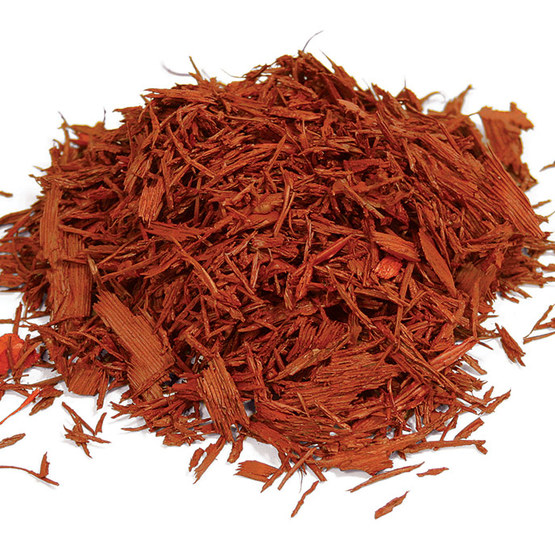
Okay, it’s not always red. In fact, it comes in brown, blue, green, orange, turquoise, black, and about a billion other colors. Nope, we’re not talking about birds or butterflies or an amazing annual plant–we’re talking about rubber mulch.
In the September/October 2009 (129) issue of Fine Gardening, we ran an article addressing the long-term effects of using rubber mulch in the garden. We know it’s ugly. Now we know it’s unsafe, too.
What do you think? Do you or does anyone you know use it? Do you think it should be used on playgrounds? What are the most ridiculous colors of rubber mulch that you’ve seen?
Here’s the original article:
Is rubber mulch safe for my garden in the long run?
–Sam Yardley, Athens, Georgia
Linda Chalker-Scott, associate professor and extension horticulturist at the Washington State University Puyallup
Research and Extension Center, responds:
Rubber mulches are advertised as permanent, effective, and safe materials for use in landscapes and gardens. At first glance, it may seem that rubber mulches are an environmentally friendly way of recycling used tires, but further research indicates they are neither effective in long-term weed control (pretty much anything will work in the short term) nor safe for the environment. While recycling waste tires is an important environmental issue, the solution is not to spread the pollution problem over our landscapes and gardens.
Hazards of rubber mulch
It’s flammable
A research study comparing several different mulches found that when rubber mulch, which contains petroleum products, is ignited, it is more difficult to extinguish than any other mulch–including wood chips.
It’s Toxic
Like any other material, tires and rubber mulches are eventually broken down by environmental factors, such as sunlight, or by bacteria and fungi. The chemicals that leach from tires are anything but benign. They include heavy metals, such as aluminum, cadmium, chromium, molybdenum, selenium, and zinc. Two other common rubber leachates are 2-Mercaptobenzothiazole (MBT) and polyaromatic hydrocarbons (PAHs); these chemicals are health hazards for humans and the environment.
It’s Destructive
Many vegetables and ornamentals mulched with rubber can accumulate high levels of zinc, sometimes to the point of death. Other metals found in decomposing rubber can also accumulate in plant roots, leaves, or fruit, depending on the species. Acidic soils are particularly sensitive because heavy metals are more available for plant uptake. Decomposing rubber mulches provide a constant stream of toxic leachates into adjacent aquatic systems. Research has also shown that entire aquatic communities are injured or killed when exposed to these chemicals.
Fine Gardening Recommended Products
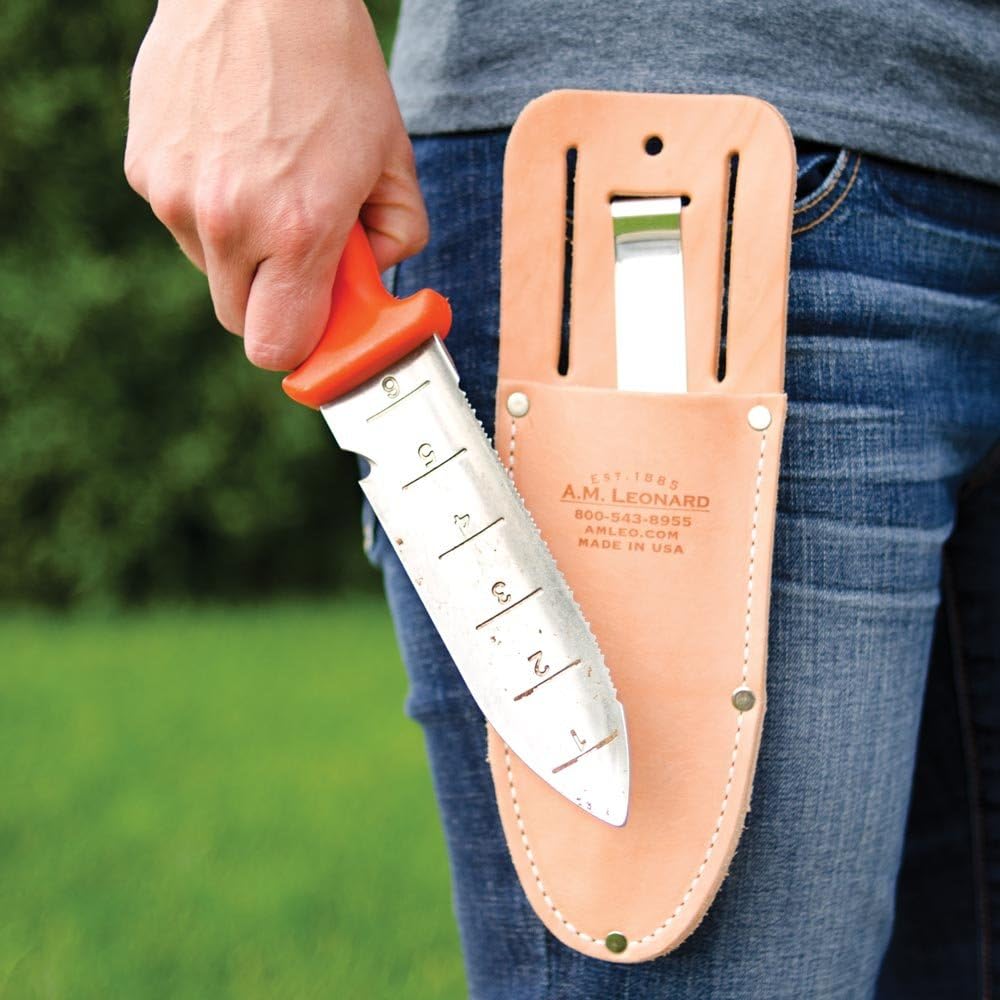
A.M. Leonard Deluxe Soil Knife & Leather Sheath Combo
Fine Gardening receives a commission for items purchased through links on this site, including Amazon Associates and other affiliate advertising programs.


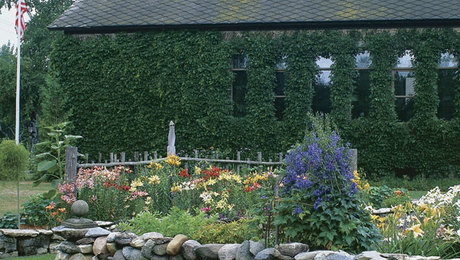
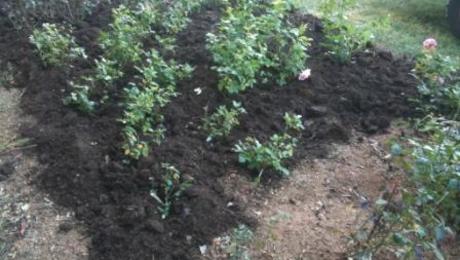
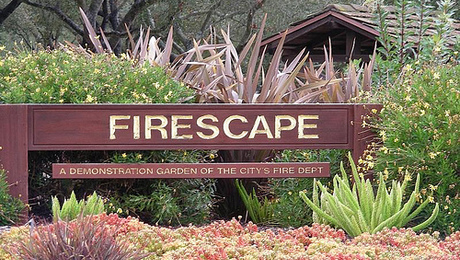
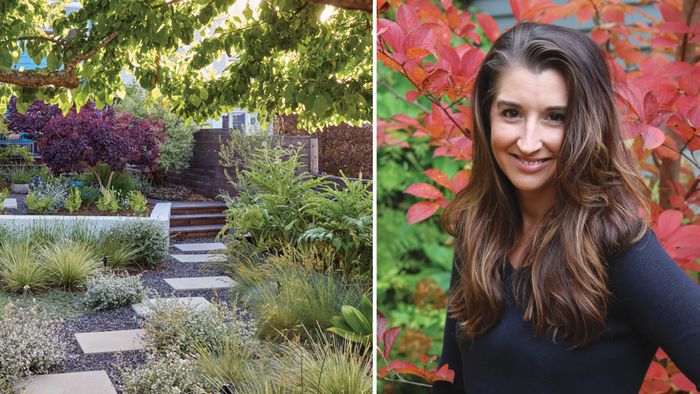
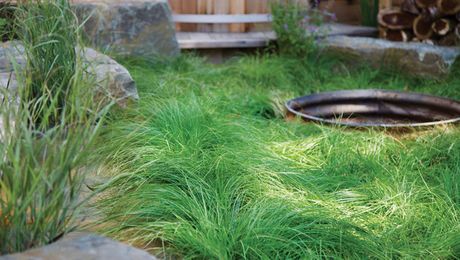
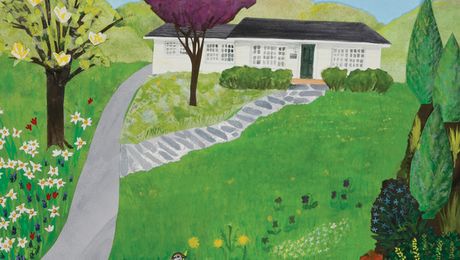










Comments
What about the compressed version used to make paving stones? I need to suppress weeds in the walkways between my raised beds. Natural material or cement paving stones are too expensive and too heavy to work with.
With all due respect, I wish to disagree with a few points.
I agree rubber mulch is unattactive, but I want to say up front that I have never bought or used any.
I have used lots and lots of rubber flooring in landscaping and my gardens. I worked for a rubber company for 30 years and got reject rolls free for hauling it off!
Your concern over the chemicals I believe to be an overstated worry. The heavy metals mentioned would be in the coloring agents involved. Makers of rubber products always make it as cheaply as they can. The raw natural rubber is expensive and fillers like clay or floor sweepings are added to the mix to increase it's volume to the maximum.
Coloring agents would be expensive and used conservatively to hold down costs.
Using rubber as borders of beds and walkways of gardens I can't say it ever killed any plant that it wasn't covering.
I depend on my wells for all my water, and have never had any problem with my drinking water.
I agree that fire would be a problem, but would point out that ignition is not easy.
The cost of all the environMENTAL concerns and regulations were a factor in my plant closing down permanently. The owners attempted to get their products made in China instead of here in America.
You should probably worry about what the Chinese put in their rubber ( ever notice how smelly it is ? ) since they don't have an EPA.
The EPA used to require that we collect samples of rainwater from the roof of the factory since it was galvanized metal. Now the CO2 we breathe out off our lungs is destroying the planet.
Your magazine consumes large volumes of ink ,paper, and energy. The information you provide needs to be correct and very valuable to counterbalance the damage you are doing to the planet.
Anything can be pushed to far. Fear mongering and speading hysterical thinking could circle around and bite you. I'm sure none of your readers would ever throw away your magazine, out of concern for the environment they must keep every issue. Who could ever waste all that material and energy.
Of course, once enough issues have piled up ,..
it might qualify as a SuperFund site.
Keep it up, eventually we can all lose our jobs.
I believed it was safe and used it only to discover that the smell was awful when the hot summer sun hit it, we had to cover it with wood mulch. I never used it again and regret using it at all
Here in Southern California, the flammable hazard alone should be enough to prevent people from using rubber mulch. Believe me, here ignition IS easy.
In 2008, the US EPA's Region 8 office issued this warning about various concerns they think should be investigated with respect to using shredded tire crumb products as playground surfaces. The report points out various research that has been done by other groups on shredded tire products with respect to a variety of different concerns (chemical leaching, particulate matter, VOCs, effects on aquatic organisms, heavy metals). The paper calls for further investigation into valid concerns that have not yet been adequately researched.
http://www.peer.org/docs/epa/09_1_6_epa_tire_warnings.pdf
I think it's reasonable to assume that the risks and warnings for shredded tire rubber mulch would be about the same.
In 2008, the US EPA's Region 8 office issued this warning about various concerns they think should be investigated with respect to using shredded tire crumb products as playground surfaces. The report points out various research that has been done by other groups on shredded tire products with respect to a variety of different concerns (chemical leaching, particulate matter, VOCs, effects on aquatic organisms, heavy metals). The paper calls for further investigation into valid concerns that have not yet been adequately researched.
http://www.peer.org/docs/epa/09_1_6_epa_tire_warnings.pdf
I think it's reasonable to assume that the risks and warnings for shredded tire rubber mulch would be about the same.
Here is PEER's news release containing additional links on the subject:
http://www.peer.org/news/news_id.php?row_id=1202
In Puerto Rico, gardening, landscape management and installations are done mostly by avaricious, illiterate and functionally illiterate fools.
They believe mulch is a FINISCHING TOUCH. For this reason the metro area looks as if the soil is bleeding terrible with the four, five and six inches of orange mulch spread all over the
medians and spaces where grass.
With the explanation given, any rubber mulch does help in any manner gardens or the environment.
Thanks for this article--I've been wondering about this and I'm also concerned about all the recycled rubber surface playgrounds in my area. What is a good use of recycled rubber tires?
Well, I must be the bad person in this group.
I have used the rubber (drk brown) mulch for three years in a muddy spot where we walk behind the house to get our gardening tools. It has served us well. It does not smell, is very easy on the feet, and we still have to weed it as plants still come through the black weed fabric and the mulch.
We thought we were re-cycling but according to most of you we did a big no-no.
Then again we also like our new president, believe in Health Care Reform and think he should talk to the children about the importance of education (we are over educated) so we probably don't belong in this discussion.
I disagree, it is not unattractive. it looks very much like red rock. I use it around my yard. In my gardern, under my patio to stop mud from tracking. In my flower planters. I love this stuff. It is inexpensive. It is recylcing. I hate cement all over the place, cement is cold and unattractive.
My plants out do the neighbors and everyone is always commenting on how wonderful my yard looks. If you haven't given this stuff a try I suggest you do.
I've used it in the bottom of a playhouse to minimize the tracking of mud. I realize that there are VOCs in tires and I believe when minimally used the impact shouldn't be as great. It is interesting when we are driving our vehicles on the roads and are continually wearing away our tires and all that powdery rubber is being channeled thru drains to our water supply and no one is alarmed. Seems like a lot of VOCs there! Warnings on the bags or bales to inform consumers that they contain VOCs might shed some light on this issue. People still smoke cigaretts, I believe that has an environmental impact also. Educate the comsumer to make the moral decision.
On a related topic, our forestry service is recommending that we not use pine straw next to our houses because of the fire danger. I think that this in coming on the heels of the fire up around Myrtle Beach.
An Extension agent said that they had had 2 fires at their agency caused by people throwing cigarette butts in the mulch. They are recommending pine straw made from recycled polypropylene. I think its called Textraw.
I have towering pine trees in my yard and they provide, at least, part of my mulch.
I would like your opinion on this?
On a related topic, our forestry service is recommending that we not use pine straw next to our houses because of the fire danger. I think that this in coming on the heels of the fire up around Myrtle Beach.
An Extension agent said that they had had 2 fires at their agency caused by people throwing cigarette butts in the mulch. They are recommending pine straw made from recycled polypropylene. I think its called Textraw.
I have towering pine trees in my yard and they provide, at least, part of my mulch.
I would like your opinion on this?
This is the kind of stuff that makes the whole discussion absurd...
There is out there a religion-like belief system that anything man creates is evil.
I have had wonderful success with the rubber muclch for a long time.. Organic mulch is actually more likely to ignite (simply based upon a lower combustion point and the fact that decomposition generates heat.)
A lot of this is anecdotal pseudo scientific speculation.
Could someone please provide us with some scientific proof of all the assertions made about this material.. Zinc pollution, etc..??
Unfortunately frequently entities such as the EPA will make rules based upon very tenuous evidence, and ultimately, we all are hurt by this.
Just the thought of rubber makes me cringe. I personally don't like the "unnatural" look of it. Mulch never stays where it is, and what do you do about migrating rubber bits?
I use wood chips, organic mulch, 3/8" gravel, or pea stone depending upon where and why the mulch is needed.
There are pluses and minuses for most situations but I don't see any pluses over the four mulch types I use.
It's common sense that rubber mulch would be more caustic since it is broken down. Tires are hard enough to withstand weight and weather conditions. Have you every seen a yard full of tires burn? It can burn for weeks or months, depending on the how many tires was stored in that yard. Black smoke and odor is horrendous. These tires broken down into mulch can be caustic to our water tables, gardens and our children playing in the rubber mulch. The chemicals can get into the childrens pores, digestive system (children have the tendency to put stuff into their mouth, and in their hands. We live in a country of chemicals. People think its ok to introduce chemicals into our body. Whether we like it or not, everything we eat, drink or wear has chemicals. Why is there instructions on newly purchased clothes to wash the article before wearing it? I watch YARD CRASHERS and I saw a yard makeovers where they did a childs playground and they filled it with shredded tire mulch. Bad decision.
The tire mulch controversey will take years before it will be considered toxic and dangerous to use. Just as in 2007 an alarm was given on the use of baby bottles containing the harmful effects of the hormone-disrupting chemical bisphenol A (BPA), a developmental, reproductive, and neural toxicant found in polycarbonate plastic—the material used to make the vast majority of baby bottles. Everytime a baby bottle with formula is heated in the microwave the chemicals leach into the formula. If you washed the plastics in the dishwasher, the hot water caused the chemicals to leach onto the containers. Certain recycle code numbers appear on the bottom of the plastic containers which alerts you that it is toxic. BPA is also widespread in bodies of water such as rivers and estuaries, and in landfills, where it leaches into the surrounding ecosystems.
Our children are going to be more environmental conscious of our waste and how we recycle in order not to have the hazardous materials end up in our landfills to contaminate our earth. Hopefully they grow up a lot smarter than todays adults.
I have lived in Georgia for 14 years and even though there is a lot of shock when somebody is recycling rubber mulch, I believe that there are greater dangers in our lazy behaviors.
People in my neighborhood use excessively dangerous chemicals to kill the weeds, ants, on their lawn, on the edges, everywhere. Use excessively mechanized tools to edge, cut grass, and blow cuttings. Surprised, I believe this is a traditional occurrence in the US. Lived in CA for 8 years, they do the same. Suddenly everyone is surprised when there is high incidence of cancer. News media tells us it is because our science has advanced and we are able to detect them earlier. I am not in support of red mulch, but I would like people to think before they throw stuff to kill harmless ants, ivy that they presume is poisonous, etc. I used rubber mulch in two terrace plots after I used medical sheets, black, and then a tarp material (3 layers). It took some work. Three years later, my crepe myrtles are fine. These terrace plots have no leaching that will hurt anyone and water is already flowing to a drain and exiting the area. Whatever falls on the terraces somehow finds itself in the soil. As an engineer, the tire bits, the brake dust, the stuff ladies apply to their faces, and sometimes men to their armpits and other sensitive areas might be more hazardous. My best friend is a biochemist and I did consult with his laboratory and they ran some tests. There are dangers in everything we use or eat. The foods are genetically altered and give us the wonderful allergies that we enjoy every year. Let us not panic. I do not own any stock in any mulch or rubber company or do I intend to buy any in the new future.
I have Rubber Mulch in my yard and so does President Obama! It's great for the children and it's environmentally friendly. It last many years it doesn't blow away like wood chips do. Now check out youtube: PLAYGROUNDS with WOOD MULCH on fire!! http://www.youtube.com/watch?v=BZhuF0hK2EE
http://www.youtube.com/watch?v=2Dvq-Q4vrX4
Here's an article just showing you how wood mulch is not much better http://knol.google.com/k/jason-borch/h1n1-concussions-and-wood-mulch-what/34vfsqycmfcml/1#!
It's amazing how often incorrect and misleading information leads to continued ignorance. The facts are that recycled rubber mulch is better for plants and trees in most instances.
The fact that Fine Gardening chose to re-run this story without examining facts, is even more disturbing.
1) Using recycled rubber mulch is advantageous to many specie of plants and trees, providing far greater benefits and reducing problems associated with wood mulch. It is hardly polluting, and more about sustaining life on this little blue planet we call Earth.
2) Flammable? Well, it definitely is more prone in form pictured here. These shredded "buffings" (as they are referred to in the industry) are neither environmentally beneficial or good to use for any purpose where wind and rain may be present. The method in which they are produced uses only the outside of larger bias-ply truck and tractor tires, leaving the tire carcasses to go to landfill. They wash and blow away easily, due to their high surface-to-weight ratio, so these "buffings" end up everywhere. This finer shredded is much more susceptible to catching fire than larger "nuggets." The larger "chunks" or "nuggets" are fire resistant, far much more than any wood mulch, and stays put even when using a leaf blower over it. Pill burn tests have proven that most of the "nugget" mulch takes a heck of a lot to make it burn, and even cigarettes and cigars are extinguished when thrown into recycled rubber mulch "nuggets."
3) Toxic? Nope, sorry, you missed the boat on this one. The only time recycled rubber releases anything of any measurable amount worth mentioning in when it is placed under water, or within a water table. If it were so toxic, we all would be dead by now with the millions of pounds of fine tire rubber washed off our streets and highways every day, month and year. The EPA concluded this in an exhaustive study in NY, and subsequently in a more recent study conducted in CA with the CA Integrated Waste Management Board. In fact, wood mulch kills many plants every year, due to the types of fungus, mold and mildew typical to cedar and other wood mulches, which attacks sensitive roots -- killing the plants. I visited one community, on a golf course, who finally realized that the cedar mulch had killed off more than $3 million in plants, trees and flowering shrubs. Not to mention that wood mulch attracts termites, rats, mice, cockroaches, and other lovely creatures who just love wood mulch.
4) Destructive? Nope. Go back to the drawing board and check your facts again. University studies have found that recycled rubber is actually more helpful to sensitive plants than wood, rock, or any other form of mulch. Rubber mulch keeps the ground temperature cooler, won't deteriorate or attract potentially harmful microbes or pests, and won't absorb and retain the solids from liquid fertilizers and pesticides (which then are released in high concentrations the next time the wood mulch becomes wet). Once again, the only substances released from recycled rubber mulch occurs when placed within water tables or other bodies of water. (The federal government found this out when they thought creating an artificial reef out of used tires off the FL coast was a good idea. Now it's cost exponentially more to retrieve these tires!)
5) There is nothing safer than recycled rubber mulch for playground safety. The U.S. Consumer Product Safety Commission has stated this for years in its publication on public playground safety. What isn't safe are wood chips, poured-in-place (which uses tire buffings and EPDM, I have much more on that if you want to know), sand (perhaps the worst choice), or rocks (really?). When 4" to 6" of recycled rubber mulch (depends on the type, and I don't mean the shredded stuff pictured in this article) provides up to 13 feet of superior fall height and head impact safety protection, that speaks volumes. When other materials are only suitable for fall heights of up to 6' to 8' with 12" depths required, and constant maintenance and re-topping every 6 months is required, recycled rubber mulch provides a cheaper, safer and longer lasting choice. The typical crossover for ROI on rubber mulch vs. wood chips is about 2-3 years (and don't forget, that requires 12" depth for only up to 8 feet of protection!)
So, is recycled rubber mulch good for plants and landscaping applications? You bet! Just make sure you get your information from reputable sources, and don't just disseminate whatever you read or hear... it's usually colored by some feelings or judgments, and not factual. This is a prime example.
I welcome and invite anyone with a differing viewpoint to a constructive debate on this topic. I trust you'll become educated, and I have the documentation to prove it.
In the interest of full disclosure, http://www.socalrubbermulch.com is the "exclusive Southern California distributor of PermaLife rubber mulch and playground safety products". This is not to say that the information SoCalRubberMulch presents is invalid (or valid, for that matter).
Correct, Ruth.
I have personally been a consultant to the California Integrated Waste Management Board regarding Tire Derived Products, and I have compiled a tremendous source of data from reputable sources on which to rely upon. This is contrary to claims based upon feelings and judgments without any data to justify or substantiate them. In most cases, false claims are simply people choosing to state what they heard or think, commonly baseless in reality.
I like to remain informed, so I tend to track and accumulate related data regarding anything to do with recycled products, especially recycled tire rubber. My sources are the most reputable federal, state and private agencies, many of which are not aligned with the industry whatsoever. By staying informed, I may then refute any claims which are untrue with solid facts from reliable sources.
As I stated in my original post, I remain available to conduct a constructive debate against anyone who feels recycled tire rubber is not suitable for landscape mulch or playground safety surfacing. I can point to data which proves beyond a reasonable doubt that it's safer, longer lasting, less expensive, and more beneficial than most of the alternatives commonly utilized.
Having read all of the discussion above, it sounds to me like heavy metals are not an issue unless the rubber has been colored. Conventional tires are of a fairly straightforward composition with no need for heavy metals. It is true that we must be careful with items coming from China - often your nose will tell you it is bad.
For shaded locations, uncolored recycled rubber mulch could be useful. Clearly in places where the sun hits it, it could be smelly... it will smell like hot rubber as VOCs could be released.
However you should all know that tires can be 100% recycled by using microwaves to break the vulcanized bonds in the rubber and return it to useful compounds, fully recovering for re-use all of the carbon black and steel. See the work of Global Resource Corporation at http://www.globalresourcecorp.com/
My understanding is that in their pilot plant in Tennessee, they were able to turn the tires back into a petroleum fuel that was combusted to heat and power the facility. They were able to recover other chemical materials for re-sale as well. Microwave manufacturing generally can do things that other methods cannot, reducing energy costs for producing things while simultaneously reducing or eliminating pollution that is typically present in manufacturing of many materials. The Asian countries are taking advantage of the energy, materials and time savings in microwave processing of materials. We have yet to exploit the many benefits of microwave processing of materials in the U.S.; the prospects are enormous and could revitalize our manufacturing sector if we so chose...
I appreciate the many good points presented in the discussion posted here and hope others will continue to post the findings of new studies on the safety of rubber mulch as they become available.
Here are a few links to collections of extensive studies and data from the EPA, IPEMA and other reputable sources:
http://en.wikipedia.org/wiki/Rubber_mulch
http://www.pinnaclerubbermulch.com/rubber_mulch_is_safer.html
http://www.epa.gov/nerl/features/tire_crumbs.html
http://www.epa.gov/osw/conserve/tools/cpg/products/playgrnd.htm
In short, Rubber Mulch is safe for playgrounds and landscaping use. I have used it in landscaping and love it, and my kids play on it at most of our neighborhood parks.
Well have read allot about all the cons. The cons are
not cons to me. The plants using around are shrubs,
and old time roses. There are no veggie near by and
the run off is no concern to me either. If creates less
work by not having to mess with adding mulch often than
its for me. If keeps the weeds down a little better
than the old organic than a plus for me.
Its in the front of the house, I'm seldom out there so
vapors are not a concern, just want low maintanence in
yard work, #1 goal.
I'VE HAD RUBBER MULCH AROUND MY CARPET ROSES FOR A COUPLE OF YEARS AND THIS YEAR THEY DIED. I WONDERING IF IT WAS THE MULCH THAT KILLED THEM?
Log in or create an account to post a comment.
Sign up Log in